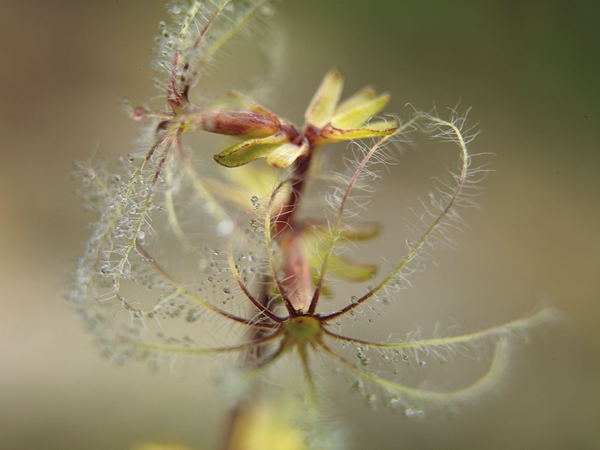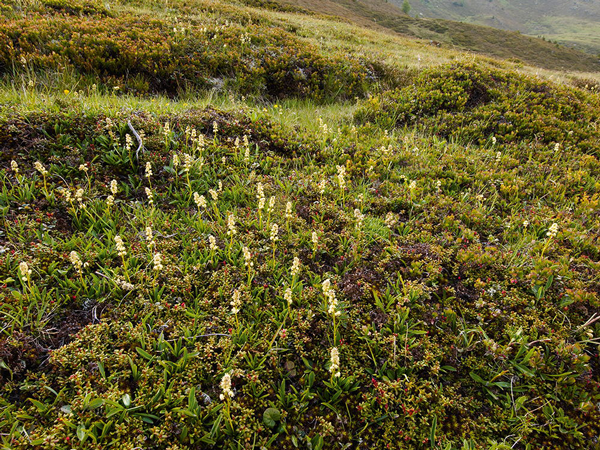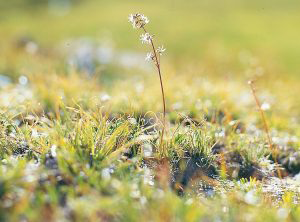| Speick PlantValeriana Celtica
This medicinal plant has a calming effect on the central nervous system while simultaneously stimulating the vegetative nervous system. Speick relaxes without tiring and revitalises body, mind, and soul. Speick was previously known as Spica celtica. The medicinal plant’s rootstock is reminiscent of an ear of grain, and so was unceremoniously dubbed Spica, the Latin word for this. Spica became Speick over the course of the plant’s centuries of history. To find Speick, you must climb many meters, leaving the treeline of the Carinthian Alps well behind. From around 1,800m, Speick builds its harmonising strength in the protected UNESCO Biosphere Reserve Nock Mountains. Valuable Speick oil has been gently extracted from the roots of the plant for thousands of years. Speick was used to perfume bathes, and the valuable oil was used for skin care in Egypt in 500 BC. For centuries, several tonnes of Speick was exported from Venice all over the world every day. The plant was already used for medicinal uses in the 10th century. The plant was worth its weight in gold and was later subject to high taxes. Speick was exported to Turkey, Syria, Morocco and Sudan until the start of the 20th century. In 1936, Speick was threatened with extinction and was placed under protection. With it, Speick promptly lost its economic importance and sank into oblivion. Speick is harvested by hand, as it has been for centuries. The Speick harvest is an important source of income for the alpine farming families with harvesting licenses. SPEICK products are the only products in the world to contain the unique Speick extract. Since 2003, the Speick plant is one of the few European plants to be certified as being harvested according to biologically regulated wild harvesting guidelines. Depending on the product, valuable Speick extract is combined with a variety of other ingredients. All products contain Speick extract, and SPEICK are the exclusive worldwide manufacturer. The versatile medicinal and aromatic plant
Even in ancient times, Speick was recognised as a healing plant and was highly esteemed. The famous doctor Galen cured Emperor Marc Aurel’s stomach problems with Speick steeped in olive or almond oil. In the Renaissance, in his 'Kreutterbuch' ['Herb book'], the scholar Pietro Andrea Mattioli recommended drinking Speick in wine as a stomach-healing remedy, which also strengthens the kidneys and bladder. Mattioli also described the Speick trade relations to Syria and Egypt via the reloading points Venice and Genoa. In the middle of the 19th century, Speick was still used very seldomly in Europe, but it was another story in the Orient, where large quantities were exported. In the Orient, valuable Speick oil has always been prized as part of a body care regime. The medicinal plant was applied to the skin with warm baths and massages. Eventually, the plant fell into complete oblivion in Europe. Walter Rau, the founder of SPEICK Natural Cosmetics, rediscovered the Speick plant and was instantly fascinated by it. He decided to incorporate the healing powers of the plant into a gentle, natural soap for body care: the Speick Natural Soap. In 1936, after centuries of overexploitation, the Speick plant was threatened with extinction and was placed under protection. A scientific study later supported something which the farmers already instinctively knew – that the plant reproduces best of all when a partial harvesting model is used under controlled conditions, which is exactly how our certified biologically regulated wild harvesting is structured. Rich in myths and traditional soothing
Speick is harvested during the "30 Days of Women and Herbs", which is the time from Assumption Day on 15th August to The Feast of the Holy Name of Mary on 12th September. Speick is one of the plants that has been given a special role in the ceremonial driving down cattle from the mountain pastures into the valley in autumn. In the past, Speick played an important role in the twelve nights between Christmas and the Epiphany and was used as beneficial incense. It's also interesting to know that in the old days, people practised Speick arrest or Speick sittings. Anyone caught stealing or committing adultery, for example, was locked in a Speick barn, after which they smelled of Speick for weeks.
|
 Speick is known in botanical circles as Valeriana celtica. Its Latin name is cultural history at its best: “Valere” is Latin for “stay healthy”, and “celtica” stands for its Celtic background, today the alpine Nock Mountains in Carinthia, Austria.
Speick is known in botanical circles as Valeriana celtica. Its Latin name is cultural history at its best: “Valere” is Latin for “stay healthy”, and “celtica” stands for its Celtic background, today the alpine Nock Mountains in Carinthia, Austria. The fascinating aspect of Speick as a medicinal plant is its balancing effect. In other words, Speick has a calming effect on the central nervous system while simultaneously stimulating the vegetative nervous system. Speick relaxes without tiring and revitalises the body and mind.
The fascinating aspect of Speick as a medicinal plant is its balancing effect. In other words, Speick has a calming effect on the central nervous system while simultaneously stimulating the vegetative nervous system. Speick relaxes without tiring and revitalises the body and mind. Speick is not only a botanical rarity and there are numerous myths surrounding the plant.
Speick is not only a botanical rarity and there are numerous myths surrounding the plant.